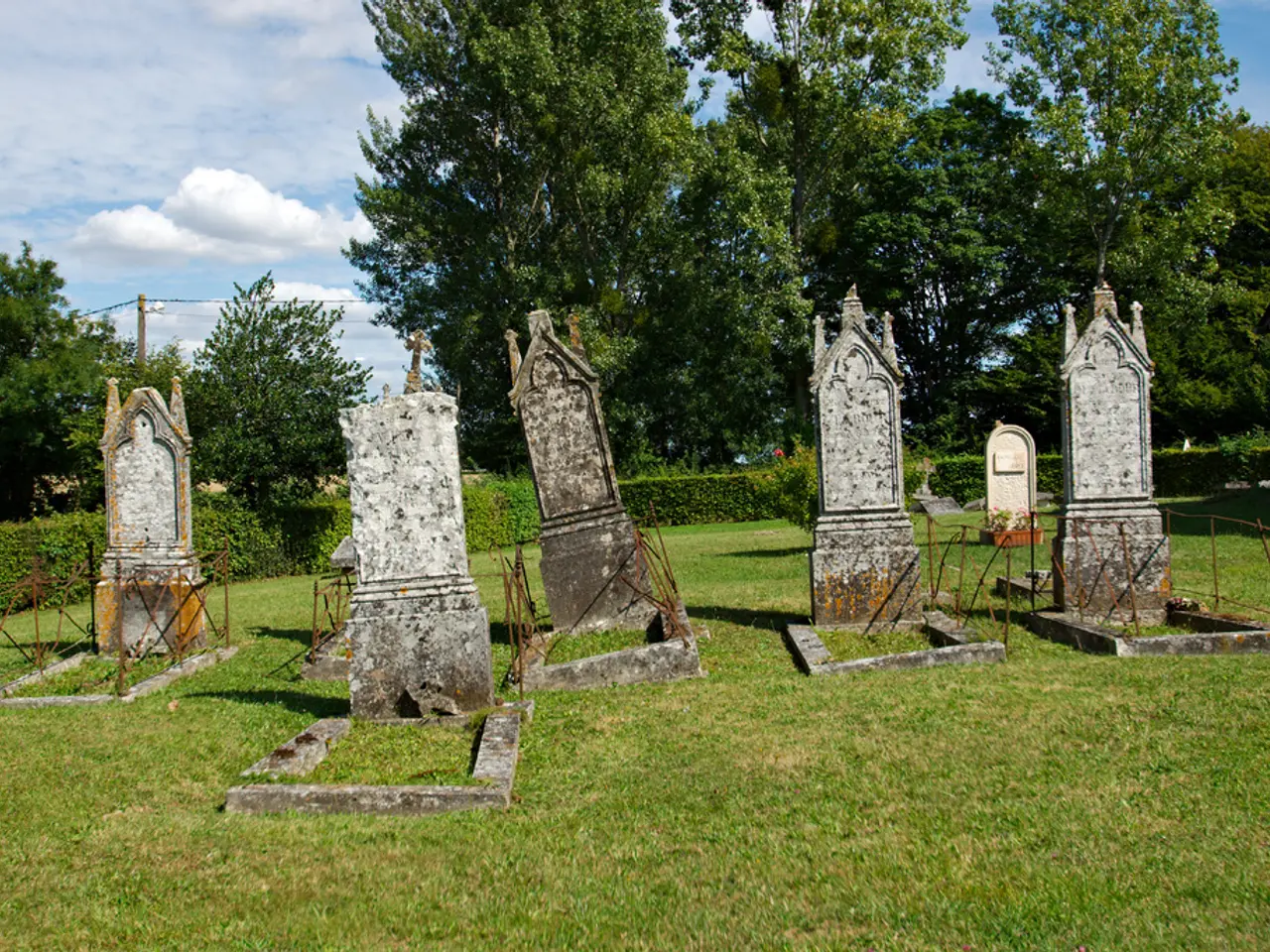Sickle cell disease and cancer: Are they one and the same?
Sickle cell disease (SCD) and blood cancer are two distinct conditions that affect the blood and bone marrow. While both can have a significant impact on a person's health, their causes, symptoms, and treatment approaches differ.
Sickle Cell Disease: A Genetic Inherited Blood Disorder
SCD is a group of inherited red blood cell disorders that affects approximately 100,000 people in the U.S. The disease is characterized by the production of abnormal hemoglobin, leading to red blood cells becoming crescent or sickle-shaped. This abnormality results in chronic anemia, episodes of severe pain, blocked blood flow, organ damage, and increased infection risk due to spleen damage.
Blood Cancer: Uncontrolled Growth of Abnormal Cells
Blood cancer, such as leukemia, occurs when the bone marrow produces excessive amounts of abnormal white or red blood cells. These abnormal cells crowd out healthy blood cells, impairing normal blood function and leading to symptoms like fatigue, infections, bleeding, and organ enlargement. Blood cancer is a malignant disease requiring cancer-specific treatment.
Treatment Differences
For sickle cell disease, treatment aims at managing symptoms and preventing complications. This includes pain control, infection prevention, blood transfusions, and in some cases, bone marrow transplant (a curative approach). Treatments focus on improving red blood cell function and reducing sickling effects.
On the other hand, for blood cancer, treatment primarily involves chemotherapy to kill abnormal cancerous cells, targeted therapies, and often bone marrow (stem cell) transplantation to replace the diseased bone marrow with healthy cells. Treatment intensity and urgency depend on cancer type, such as acute vs. chronic leukemia.
Managing Sickle Cell Disease and Blood Cancer
Lifestyle changes can also play a crucial role in managing both conditions. For SCD, this may include drinking enough water, quitting smoking, and avoiding high altitudes and low oxygen levels. For blood cancer, a balanced diet, regular exercise, and stress management are often recommended. Over-the-counter pain relief such as acetaminophen (Tylenol) or ibuprofen (Advil) can help treat mild to moderate pain, while stronger pain relief medications called opioids may be prescribed for severe pain.
In summary, sickle cell disease is a genetic red cell disorder causing anemia and organ damage due to abnormal hemoglobin, whereas blood cancer is a malignancy of blood cells with uncontrolled abnormal cell proliferation. Their treatments differ, focusing on symptom management and supportive care for SCD, versus aggressive cell-killing and marrow replacement for blood cancer. Notably, some research suggests people with sickle cell disease might have a higher risk of developing certain blood cancers, though data is limited.
References:
- NHLBI (2020). Sickle Cell Disease.
- Mayo Clinic (2021). Sickle Cell Disease.
- CDC (2021). Sickle Cell Disease.
- Leukemia & Lymphoma Society (2021). Blood Cancers.
- American Cancer Society (2021). What Is Cancer?
Sickle cell disease, a genetic disorder, affects red blood cells, leading to chronic anemia, pain, organ damage, and increased infection risk due to spleen damage. Treatment focuses on managing symptoms and preventing complications, often including pain control, blood transfusions, and in some cases, a curative bone marrow transplant. Conversely, blood cancer requires treatment to kill the abnormal cancerous cells, and may involve chemotherapy, targeted therapies, and stem cell transplantation to replace the diseased bone marrow with healthy cells. To manage these conditions, lifestyle changes like drinking water, quitting smoking, and maintaining a balanced diet are recommended. Notably, individuals with sickle cell disease may have an elevated risk of developing certain blood cancers, though the data is limited.




